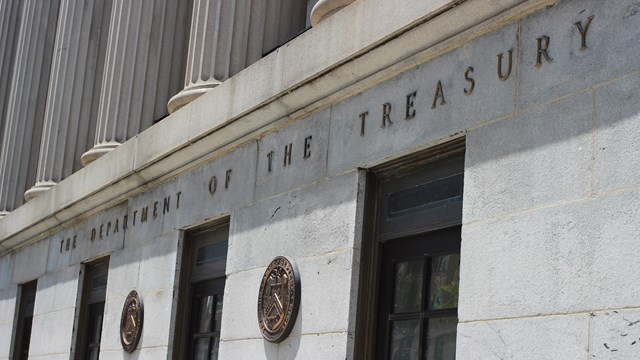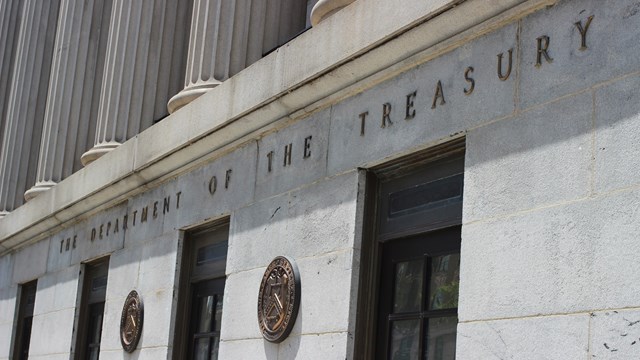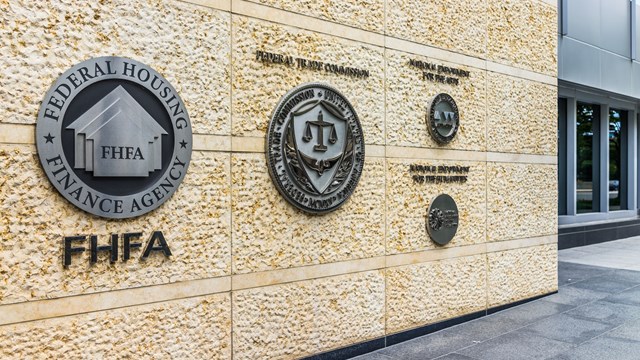Bills about pets, lead paint abatement and property tax reform are among the items currently being debated by the New Jersey Legislature that could affect the operations of condo boards and homeowner associations throughout the Garden State. The legislative arm of the Community Associations Institute (CAI) has been monitoring several pieces of legislation that would impact homeowners and community associations in various ways, according to Audrey Wisotsky of the law firm of Pepper Hamilton LLP, and the chair of CAI's Legislative Action Committee.
Wisotsky says that there has been very little movement on a series of bills that aim to impose standards and regulations on the governing of community associations. Tops on that list is The Uniform Common Interest Ownership Act (UCIOA), which deals with the regulation of community associations, but has been hotly debated over the years by homeowner organizations. UCIOA was first introduced in 1999 and has been reintroduced about every year since then. This year's bill, A584, which is sponsored by Assemblyman Christopher "Kip" Bateman, R-16, representing Morris and Somerset counties, and Assemblyman Steve Corodemus, R-11, representing Monmouth County, was introduced in January and has been referred to the Assembly's Housing and Local Government Committee.
UCIOA is intended to establish uniform guidelines for the operations of homeowner and common interest communities to help them handle their day-to-day affairs. It spells out the rights of the association and unit owners and how the community should be managed, what types of bylaws should be promulgated, and various rules and regulations that govern, for example, the conducting of meetings, quorums, and voting procedures. Under UCIOA, associations would also be required to register with the state Department of Community Affairs (DCA), and in turn, the DCA will provide associations with an on-staff ombudsman, whose job is to provide assistance to board members and to help resolve any disputes that may arise between the board and unit owners.
There are also dozens of separate bills under the UCIOA umbrella relating to HOA operations, but they too, have been bogged down in the discussion phase, according to Wisotsky. Bateman and Assemblyman Guy R. Gregg, R-24, have proposed A581, which would establish a Community Dispute Resolution Commission to facilitate community association dispute resolution. It is state law in New Jersey that methods of alternative dispute resolution (ADR) be tried as a first step in resolving disputes rather than resorting to litigation. Bateman is also sponsoring A582, which would require that property managers of community associations be certified, and A592, which would give DCA enforcement powers over community and homeowners associations. DCA could impose sanctions, including fines, call for removal of board members, oversee elections, and require that associations register with the Commissioner of Community Affairs. Another bill, A596, also proposed by Bateman would impose standards of accountability on community associations and require that HOAs have open meetings and provide reasonable access to records and financial audits. All of these bills are presently in committee.
Taking the Lead Out
Governor James E. McGreevey signed the Lead Hazard Act into law on January 20, 2004. The legislation, which was sponsored by Sen. Ronald L. Rice, D-Newark, will create a statewide lead abatement fund for landlords and require more stringent inspections.
The act authorizes the DCA to establish a "Lead Hazard Control Assistance Fund" to provide low-interest loans to the owners of housing units for lead-based paint hazard control work. Funding for these loans will be generated from inspection fees and a portion of the tax revenue from the sales of paint containers. Additional grants will be made for owners of single- and two-family homes, and multiple dwellings with no more than four separate dwelling units.
DCA will also be required to establish and maintain a registry of lead-safe housing to track the state's progress of lead hazard control programs, as well as to identify lead-safe housing in multiple dwelling units. Additionally, DCA's Division of Codes and Standards will now be required to inspect multiple dwellings for lead-based paint hazards, over and above regular inspections as designated in the state's "Hotel and Multiple Dwelling Law."
There is some confusion, though, Wisotsky reports, about who will be responsible for coordinating the inspections and responding to any violations. DCA's proposed regulations, says Wisotsky, require that the associations be the agents of unit owners for the purpose of receiving notices related to inspections and any orders issued by the Bureau of Housing Inspection. Thus, the association is responsible for delivering notices to the unit owner and/or their rental tenants, and they also might be required to provide the names and addresses of the owners, who are liable to pay the $20 inspection fee. If an association fails to provide the names and addresses of tenant/owners, the association is then presumed to own the units and therefore may be held responsible for paying for the inspection and possible remediation costs and fines from any subsequent violations that might be found, says Wisotsky.
Another component of the legislation is the creation of an Emergency Lead Poisoning Relocation Fund. DCA will oversee the fund, which will have $2 million available to provide emergency relocation assistance for lead-poisoned children.
According to the governor's office and statistics provided by the New Jersey Department of Health and Senior Services, more than 5,230 children tested positive for lead in 2003, 4.2 percent less than the 5,457 that showed elevated lead levels in 2002. While every county in New Jersey reported lead-poisoned children, Essex County had the highest elevated blood lead results with 1,879 children. More than 172,900 children were tested for lead poisoning in 2003.
"We must protect our children where they spend the most time—in their home," Governor McGreevey said in a statement. "Every mother and father, myself included, wants their children to grow up in a home that is safe and lead-free. Now, thanks to Senator Rice's leadership and commitment, this new law will help ensure the continued safety of our children. From the water they drink, to the air that they breathe, we are putting the health of our children first, and that will build a better New Jersey."
"Lead poisoning is a serious problem in New Jersey," added Assemblywoman Loretta Weinberg, D-Bergen. "Thousands of children are at risk of poisoning from lead-based paint, especially in older homes and apartments."
Policing Pets
Another piece of legislation, which CAI is monitoring, according to Wisotsky, is a bill that allows tenants of rental properties to keep animals as pets, even if the homeowners association or community prohibited it. The bill, known as A2570, also prohibits a landlord from refusing to rent to pet owners. As originally drafted, the landlord would have been any owner including the owner of an apartment complex.
CAI representatives, according to Wisotsky, were successful in lobbying lawmakers to include an amendment exempting "common interest communities" including condominiums, planned real estate developments, retirement communities, housing cooperatives, and mutual housing corporations, from the bill's provisions. It remains to be seen whether the bill will pass with the amendment intact, she says.
CAI is also looking to amend several other bills with the same provisions protecting community associations, including laws calling for child-protection window guards in multiple dwellings; remediation of mold hazards in indoor environments; and a requirement that sellers of residential real estate, including an owner, be required to disclose to a purchaser knowledge of termite infestation and damage to a property.
The Millionaire's Tax
Earlier this year, McGreevey announced a proposal he calls "Fair and Immediate Relief (FAIR)," in which he advocates giving out rebates to low and moderate income families - the proceeds of which would come from imposing new taxes on the state's wealthiest homeowners. The plan also calls for limiting administrative and bureaucratic spending and a recommendation that a special constitutional convention be convened to explore reforming the state's property tax system.
The tax rebates would be financed by imposing a new "millionaire's tax" on around 28,500 taxpayers that earn in excess of $500,000 annually. The tax relief would benefit approximately 2 million seniors and middle class New Jersey families, according to the governor.
According to the New Jersey State League of Municipalities (NJLM), New Jersey ranks first as having the highest property taxes in the nation. Property taxes account for 45 percent of total state and local tax revenue, and the lowest 20 percent of all households by income pay 9.2 percent of their earnings in taxes compared to the wealthiest 20 percent who pay only 3.6 percent of their earnings in taxes, according to the NJLM. An average family earning $45,000, according to the governor, pays 10 percent in property taxes, while a family making $500,000, pays only 3 percent.
Legislation calling for a constitutional convention, which is tentatively scheduled for April of 2005, must by completed by the end of August to allow for the question to be on the November ballot.
"We are facing a property tax crisis that has been building in New Jersey for more than a century," said McGreevey. "We can restore tax fairness and provide immediate relief to nearly two million working families and senior citizens."
Debra A. Estock is Managing Editor of The Cooperator.







Leave a Comment